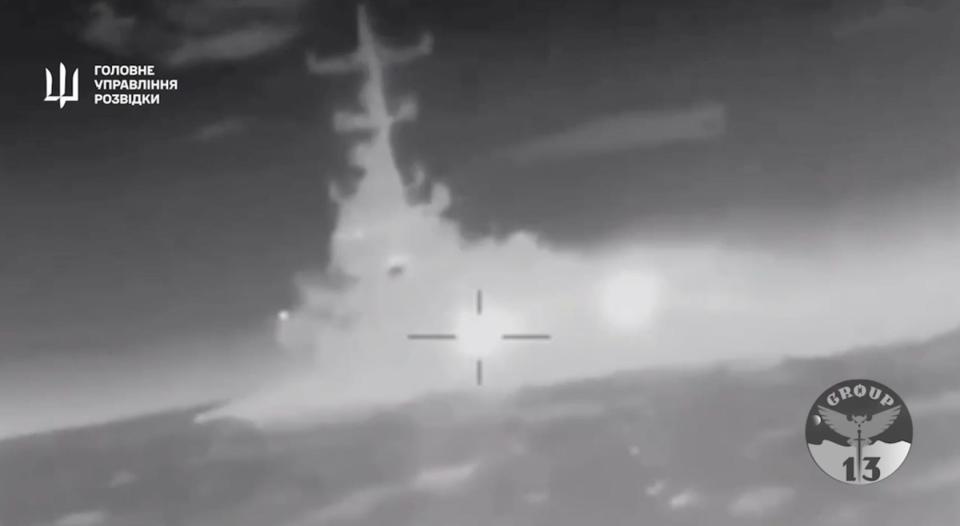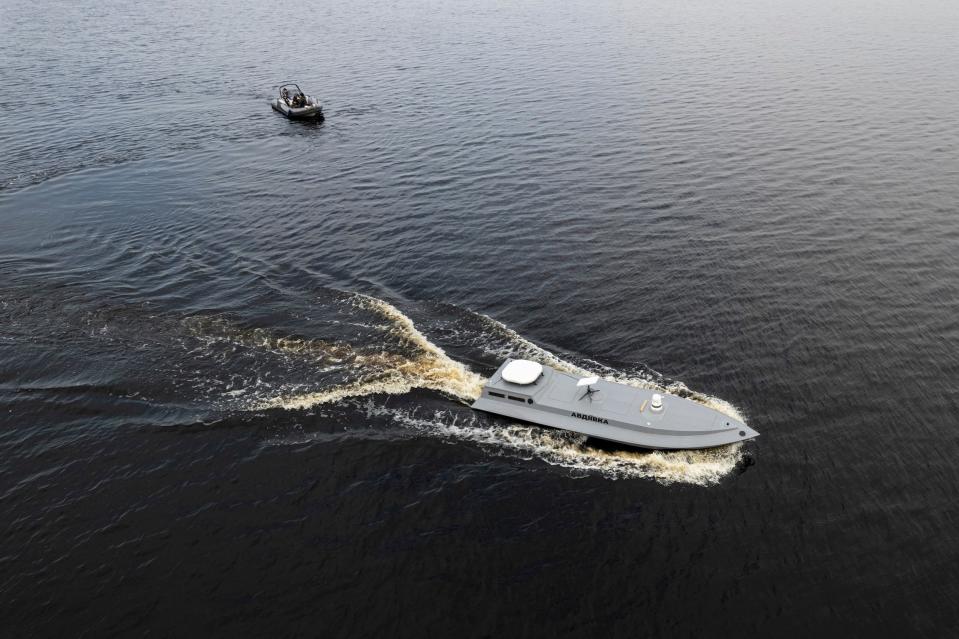-
Ukraine said Russia is trying to make naval drones by learning from fragments of Ukrainian ones.
-
A drone warfare expert said that’s unlikely to be much help and may waste Russian resources.
-
Ukraine has hammered Russia’s fleet, but it doesn’t have a proper navy that Russia could target.
Russian efforts to copy Ukraine’s naval drone success won’t help its invasion and may be a waste of resources, a drone warfare expert told Business Insider.
Ukraine’s homemade naval drones have been instrumental in helping contain Russia’s Black Sea Fleet. And Ukraine last year warned that Russia was attempting to use recovered parts of its drones to try to make its own, The Telegraph reported.
UK intelligence also said Russia was trying “to close the capability gap with Ukraine.”
Meanwhile, Yevhen Yerin, a representative of the Ukrainian Defense Intelligence, said this week that Russia will try but fail in its efforts.
But according to one expert, Russian attempts to copy the technology may be pretty pointless, at least in the short term.
James Patton Rogers, a drone expert at the Cornell Brooks Tech Policy Institute, said doing so may be a waste of resources, given Ukraine doesn’t really have a navy to target.
Patton said Ukraine’s drones have been successful as they’ve been launched against crewed Russian naval assets. But Ukraine doesn’t have warships, only smaller vessels, which means Russian drone attacks would be pretty inconsequential.
“Put simply, Russia may be able to utilize the parts and intel to build maritime drones, but the question to ask is: ‘Would this be the most effective use of Russian resources?'”

Naval drones have formed a key part of Ukraine’s attacks against Russia’s Black Sea Fleet in Crimea.
Earlier this year, Ukraine’s military claimed to have destroyed a third of the fleet, and in March, the UK’s Ministry of Defence declared it “functionally inactive.”
Ukraine said this month that Russia had pulled its last Black Sea Fleet patrol ship out from Crimea.
Rogers said that “there is no denying that Ukrainian engineers have had great success in building a maritime drone force from very little.”
He added that their ingenuity in the earlier stages of the war had “led to jet skis, speed boats, and commercial technologies being transformed into viable and vital defensive weapons that severely stunted Russian naval operations.”
Drones, both on land and sea, have been used more in Russia’s invasion than in any other conflict to date.
They’ve been used to attack soldiers, weaponry, and infrastructure, as well as to gather intel to guide other weaponry.
Drones and drone-jamming equipment are also constantly being upgraded, with both sides trying to out-develop and learn from each other’s technology.

Rogers previously described this to BI as a “cat and mouse game.”
In his comments earlier this week, Yerin said that Russia was unlikely to succeed in copying Ukrainian technology because Ukraine’s engineers are so skilled.
He said Ukraine worked on them for years and that it’s “unlikely that the enemy will be able to replicate anything like this.”
Rogers, however, said Russia could be successful.
“Just because Ukraine has led the way on maritime drone development, does not mean that Russia would not benefit from capturing and analyzing parts of captured Ukrainian drones,” he said.
He added that Russia has “vast experience in naval engineering and could utilize elements in their own maritime drone designs if needed,” and that it could lean on its relationship with Iran, which has been aiding Russia’s drone efforts and has been working on sea drones itself.
But that still wouldn’t make them very useful in the current conflict, he said.
Russia may, however, be thinking about future wars, like one with NATO.
Many European countries say Russia could attack elsewhere in the continent if it’s not defeated in Ukraine, which could result in a wider conflict.
Even so, it’s not clear how much of an advantage naval drones would be in such a war.
Read the original article on Business Insider
EMEA Tribune is not involved in this news article, it is taken from our partners and or from the News Agencies. Copyright and Credit go to the News Agencies, email news@emeatribune.com Follow our WhatsApp verified Channel





